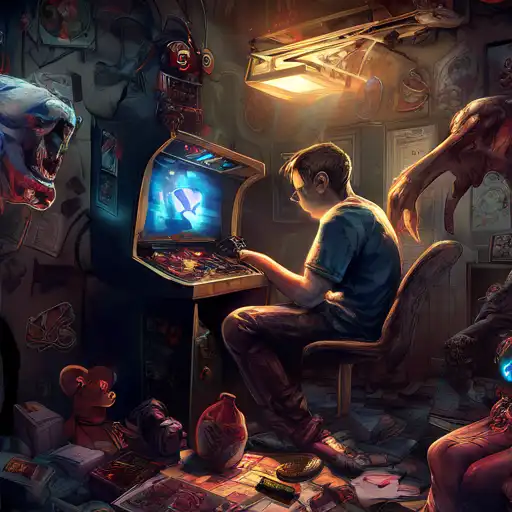Introduction to Gaming Addiction
Gaming addiction, a growing concern in the digital age, taps into deep psychological triggers that can lead to compulsive behavior. This article delves into the psychological underpinnings of gaming addiction, offering insights into why some individuals are more susceptible than others.
The Role of Dopamine in Gaming Addiction
At the heart of gaming addiction is the brain's reward system, particularly the release of dopamine. Games are designed to provide instant gratification, rewarding players with points, levels, or virtual goods, which in turn reinforces the desire to keep playing.
Understanding the Reward Loop
The reward loop in gaming is a powerful psychological mechanism. Each achievement in a game triggers a small dopamine release, encouraging the player to seek out more rewards, leading to a cycle of continuous play.
Psychological Vulnerabilities to Gaming Addiction
Not everyone who plays video games becomes addicted. Certain psychological factors increase vulnerability, including:
- Low self-esteem
- Social anxiety
- Depression
- Lack of real-life social connections
These factors can make the virtual world of gaming more appealing than real-life interactions.
The Impact of Game Design on Addiction
Game developers employ psychological principles to keep players engaged. Features like infinite scrolling, loot boxes, and social competition are designed to exploit human psychology, making games more addictive.
How Social Features Enhance Addiction
Many games incorporate social features, such as multiplayer modes or online communities, which can fulfill unmet social needs in players' real lives, further reinforcing addictive behaviors.
Strategies for Managing Gaming Addiction
Understanding the psychology behind gaming addiction is the first step toward managing it. Strategies include:
- Setting time limits for gaming
- Seeking alternative activities that fulfill similar psychological needs
- Building real-life social connections
- Professional counseling for underlying psychological issues
For more information on managing digital addictions, explore our mental health resources.
Conclusion
Gaming addiction is a complex issue rooted in psychological mechanisms. By understanding these triggers, individuals and professionals can develop more effective strategies for prevention and treatment. Remember, moderation is key in all aspects of life, including gaming.
